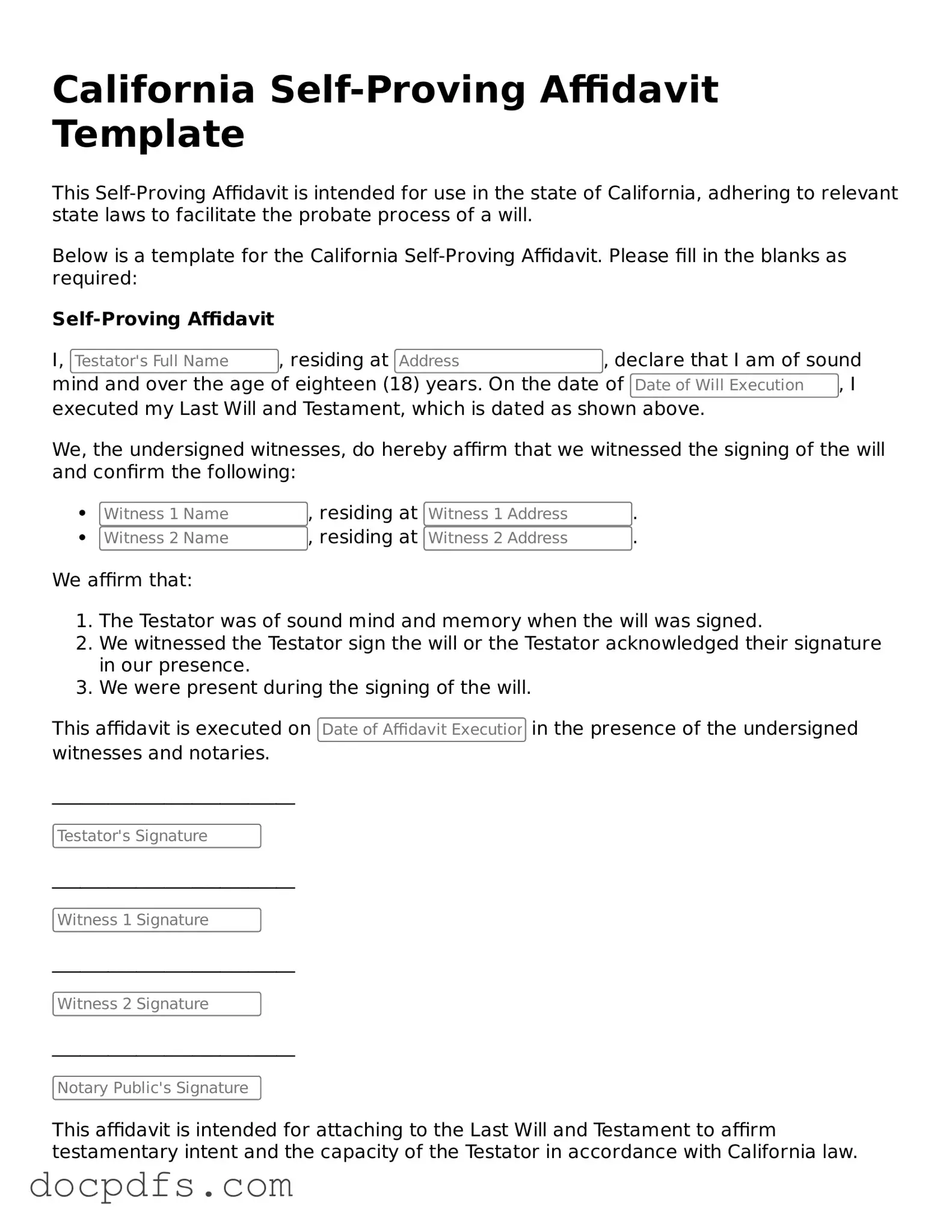What is a California Self-Proving Affidavit?
A California Self-Proving Affidavit is a legal document that allows a will to be validated without the need for witnesses to testify in court. This affidavit is typically signed by the testator (the person who made the will) and the witnesses at the same time. By doing this, it simplifies the probate process, making it easier and faster for the estate to be settled.
Why should I use a Self-Proving Affidavit?
Using a Self-Proving Affidavit can save time and reduce complications during the probate process. When a will includes this affidavit, it provides a presumption that the will is valid, which means the court does not need to call witnesses to confirm its authenticity. This can expedite the process, allowing the estate to be administered more smoothly.
How do I create a Self-Proving Affidavit?
To create a Self-Proving Affidavit in California, follow these steps:
-
Prepare your will, ensuring it meets all legal requirements.
-
Include a Self-Proving Affidavit section at the end of your will.
-
Sign the will in the presence of two witnesses.
-
Have the witnesses sign the Self-Proving Affidavit, affirming they witnessed you signing the will.
-
Consider having the affidavit notarized for additional validation.
Who can serve as witnesses for the Self-Proving Affidavit?
In California, any competent adult can serve as a witness for the Self-Proving Affidavit. However, it is advisable to choose individuals who are not beneficiaries of the will. This helps to avoid any potential conflicts of interest and ensures that the process remains unbiased.
Is a Self-Proving Affidavit necessary for my will?
No, a Self-Proving Affidavit is not strictly necessary for a will to be valid in California. However, including one can significantly streamline the probate process. If you want to avoid complications and make it easier for your loved ones after your passing, it is a wise choice to consider.
What happens if my will does not include a Self-Proving Affidavit?
If your will does not include a Self-Proving Affidavit, it can still be valid. However, the probate court may require witnesses to testify about the authenticity of the will. This can lead to delays and additional legal proceedings, potentially complicating the process of settling your estate.
Can I revoke a Self-Proving Affidavit?
Yes, you can revoke a Self-Proving Affidavit. If you create a new will or make changes to your existing will, the previous Self-Proving Affidavit becomes void. It is important to clearly communicate your intentions and ensure that any new documents comply with California's legal requirements for wills and affidavits.

